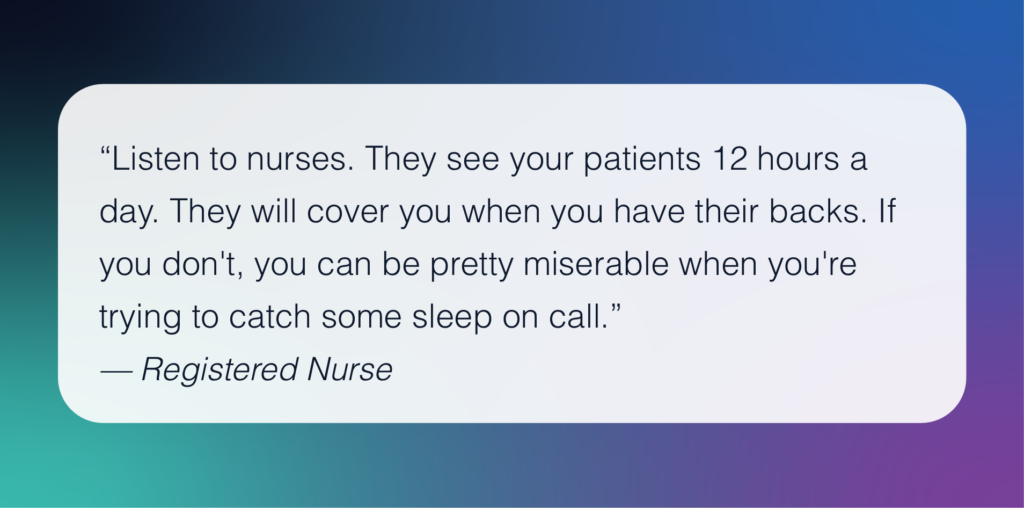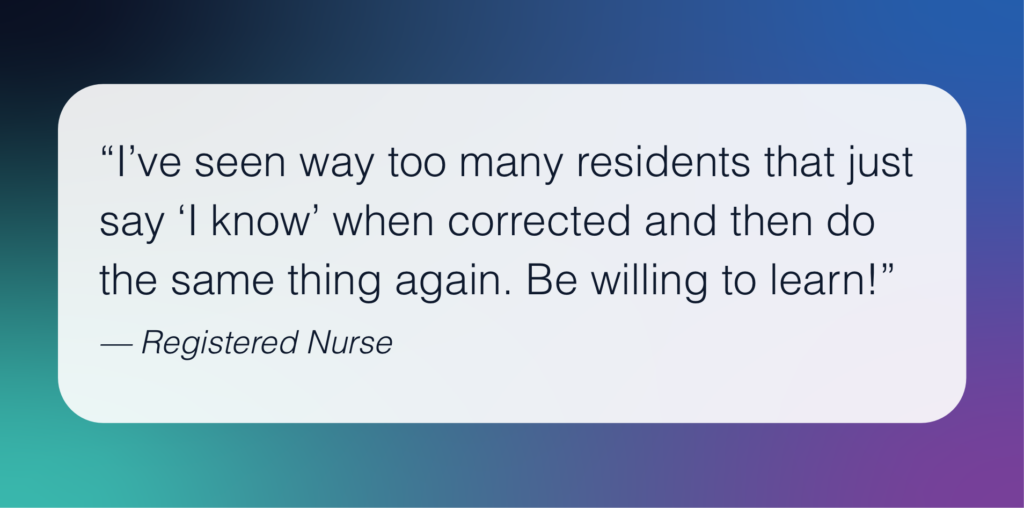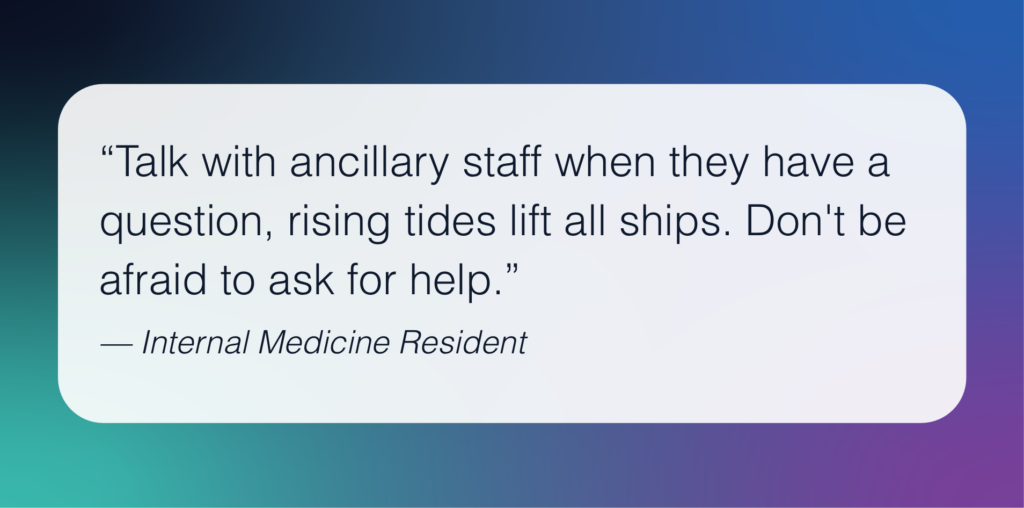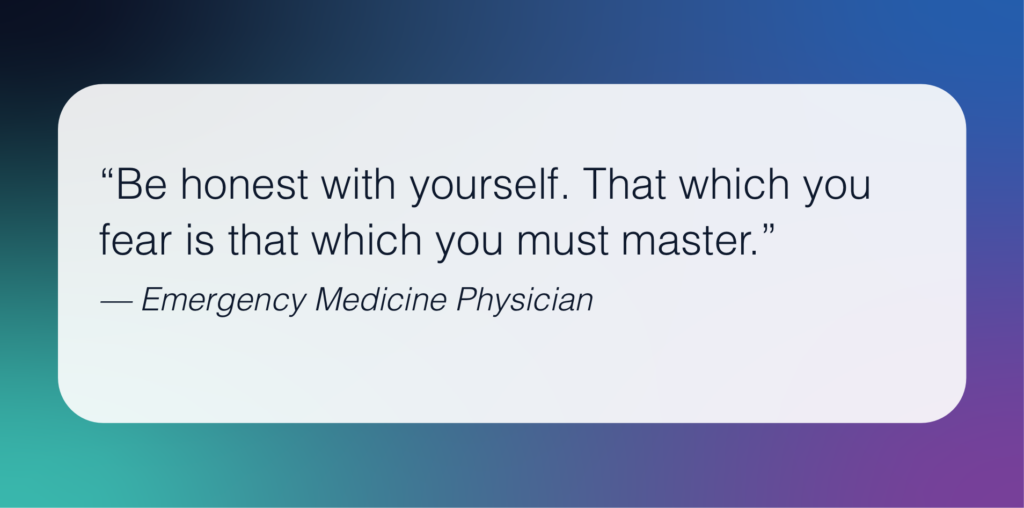
Congratulations on becoming a resident!
Your residency will be an incredible time of hands-on learning … it will also be a time of working night shifts, finding work-life balance, and learning to be an effective member of a team.
It’s a lot … but you’re not on your own. Our residency guide offers tips from healthcare professionals who’ve been there.
So ask questions, get help when you need it, learn from mistakes, and take care of yourself. You got this.
Residency Guide Part 1: Surviving the Night Shift
You’re getting ready for work, but instead of the sun rising, it’s about to set. That’s because it’s your first of many 12-hour shifts during residency. Here are residency guide survival tips for making it through the night shift.
1. Keep to Your Regular Programming Schedule
In order to survive your night shift, you need to think about your shift the same way you think about a daytime shift.
Eat full meals at regular intervals and have lunch midway through your shift.
Drink coffee at the beginning of your shift instead of the end.
Stay hydrated. You need as much water at night as you do during the day if you’re on your feet. Staying hydrated improves concentration, mood, and blood pressure.
It’s normal if you can’t fall asleep naturally. After all, the night shift isn’t natural. Think about how to prepare for the night shift. During the day, wear a sleep mask and ear plugs to help block out noise and sunlight. The day before your first night shift, sleep in as late as you can. Some residents recommend taking a power nap before starting your shift.
2. Don’t Go To Bed Angry
It’s hard enough to get to sleep; so avoid unpleasant interactions that will keep you up.
A cardiologist on Twitter shared that she used to answer night calls with “What’s the emergency?” But after a time where she needed an on-call pediatrician for her child and the pediatrician responded with “How can I help?”, the cardiologist changed her approach.
The nights are hard for everybody, but the sun always rises. Be nice, even if you have to fake it sometimes.
3. Double Check Yourself
Fatigue impairs decision making and increases risk tolerance. Double-check any critical decisions or calculations you’re making during the night shift, especially during periods where you feel yourself fading.
Work out a schedule with your team that covers everyone’s breaks. If you need to close your eyes during your break, find a dark space away from the activity in the wards. A 15-to-20 minute nap can significantly improve your alertness and responsiveness. Just remember to set an alarm!
4. Don’t Let Your Nutrition Go
You’ll understandably need a snack or two to get you through your shift. Keep things easy with chopped veggies, nuts, hard-boiled eggs, or other quick-to-eat snacks with protein and fiber. You’ll feel more energized and clear — surviving the night shift is easier when you feel better.
5. Dress Comfortably
Get yourself some night-shift gear and wear it like a uniform. You’ll be comfortable and you’ll look professional. Hospitals tend to feel coldest in the middle of the night, so plan to bring what you need to stay warm. Wool is a good choice.
After standing and walking for 12 hours, you may feel swelling and aching in your legs. Compressions socks can help with the swelling. Ask anyone who stands for a significant amount of time and they’ll tell you how essential compression socks are for surviving the night shift.
Residency Guide Part 2: Finding Work-Life Balance
Between the backlog of patients, paperwork, and the stress of student debt — and the subsequent pressure to take on more patients — there’s hardly time for basic household errands, forget hobbies or friends. Here are residency guide tips for achieving work-life balance — or at least a semblance of it.
1. Block Off a Day for Yourself
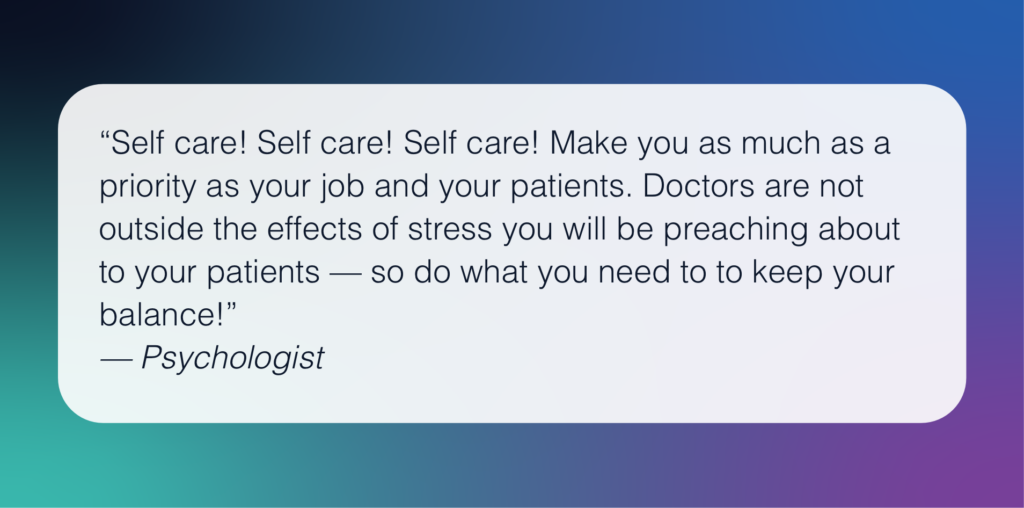
Identifying your priorities and making time for them is key to work-life balance.
Human rights technologist Sabrina Hersi Issa recommends blocking off a recurring day on your calendar every month — she uses her birthday date, the 16th — and calls it Personal Inventory Day. Use this day to tackle what you need to do, no matter how big or small. Whether it’s catching up on cleaning or laundry, going to the bank, scheduling a doctor’s appointment, reassessing your goals, or simply a self-care day — make time to do whatever it takes to feel in control of your life.
2. Don’t Mistake Burnout for Strong Work Ethic
You’re new and you want to prove yourself, but good work ethic isn’t pushing yourself to the point of burnout.
Feeling constantly dissatisfied and depressed — signs of burnout — are not requirements of being a good doctor. Set boundaries. Figure out how many patients you can comfortably manage and stick to it. If you feel like you’re overwhelmed, change your schedule and ask for help from your staff.
3. Consider How Much Your Time Costs
When people say “time is money,” they usually mean “working faster makes more money.” A more relevant interpretation of this would be: Accomplish your tasks by spending either time or money. If chopping vegetables would cost you an hour of time, but only $2, then you just bought an hour of time for $2. That’s a bad price for an onion but an unbelievable deal for 60 minutes.
Save time by using templates and checklists so you’re not staying late to do repetitive work. Use templates in electronic medical records and make clinic checklists.
4. Don’t Give Up
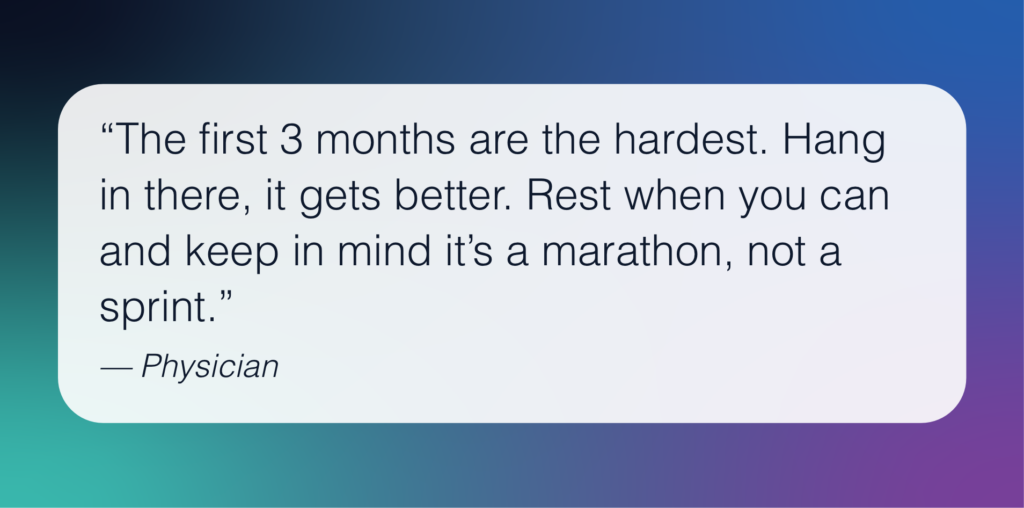
Change and adjusting to change doesn’t happen overnight. And the bigger the change, the more complex the adjustment. It can take a few months to adjust to a new environment. And remember, you’ve got plenty of time.
5. Protect Your Time and Invest in a New Skill
Investing some time into a hobby unrelated to medicine can help with work-life balance. If you don’t have one, pick one. You should have an identity both at work and outside of work. It doesn’t just make you more interesting — you’ll feel more fulfilled, too.
Immersing yourself in a different activity can help you cope with stress and remind you that you’re more than your job title. Doctor, yes, but also an athlete or artist.
Residency Guide Part 3: Working With Allies
As a resident, working with allies is vital. Whether it’s nurses or your own attending, all healthcare professionals deserve the same amount of respect. Follow these residency guide recommendations and you’ll be the colleague people are excited to be on call with.
1. Listen to the Nurses … and the Pharmacists … and the Lab …
In building this residency guide, listening to nurses was one of the most repeated survival tips — and for good reason. They are at patients’ bedsides a lot more than the physician. That amount of exposure gives them an advantage in seeing patient changes over time.
We can’t stress this enough: Nurses will save you over and over again. Don’t push them away. Bring them closer.
Similarly, if a pharmacist asks if you’re sure about a medication order, don’t take it personally. Instead, ask for details. A technologist from the Figure 1 community stated that the lab is “happy to help if you treat them like a valued member of the team. Talk down to us and word travels fast.”
Labs receive few calls and even fewer visits. If you have a case where things don’t fit, go see them in person. You’ll learn a boatload.
2. Don’t Avoid Challenging Work
Working with allies means not being afraid of challenging work. Instead of bumping work to others, push yourself to do tasks that seem hard, but are incredibly useful.
One example is placing IVs. You’ll have years to practice before you’re independent, so take that opportunity now. Even if you only do it once a week, it will make a massive difference in the long run.
3. Consider Who You’re Charting For
Whether you’re documenting or calling someone to ask for their help or service, always be as clear and polite as possible. On the phone, start by introducing yourself, “Hi, this is Rebecca from general surgery …” and ask if it’s a good time to speak before making any requests.
When it comes to documenting, remember that your notes will be read by other doctors, students, nurses — and yes, sometimes lawyers. Don’t leave others to figure out what you were thinking; write it down. In other words, show your work.
4. Consider Your Timing
Doctors often think about the frequency of medication but not the frequency of bloodwork. This is especially valuable if you finish your order with the words, “… and please call me at [phone number] when the result is available.”
5. Stay in Touch
Every one of the attendings and teachers you’ve ever had is making an investment in you. If you want to grow those investments, it’s useful to let people know what kind of progress you’ve made.
Send a text, email, or letter to any mentors who have helped you along the way. Companies often send out quarterly reports and so can you: A quick cup of coffee once every six months can add a lot of insight over time.
Originally published June 14, 2021; updated June 5, 2023
Join the Conversation
Register for Figure 1 and be part of a global community of healthcare professionals gaining medical knowledge, securely sharing real patient cases, and improving outcomes.

